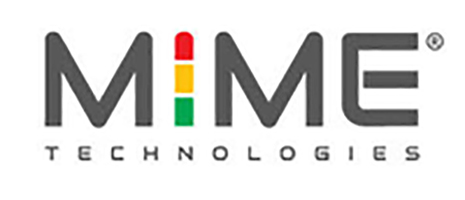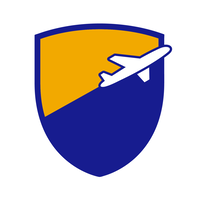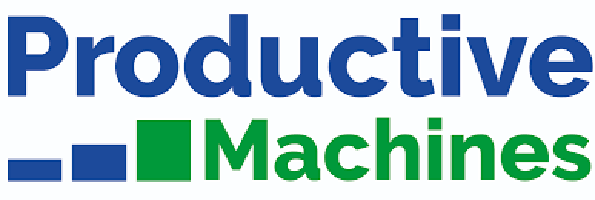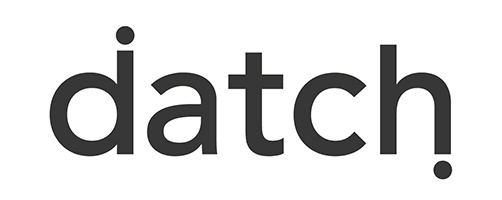
Startup cohort gathers for demo day
The ATI Boeing Accelerator is a three month programme for world-class startups building industry 4.0 and sustainability enabling technologies, with the potential to bolster the growth and competitiveness of the UK aerospace industry.
The programme is delivered in partnership with the Aerospace Technology Institute (ATI), Boeing, GKN Aerospace, and Ignite. The accelerator offers a £100K equity investment per startup, first-hand access to ATI, Boeing, GKN Aerospace and Rolls-Royce strategists and technical experts.
Founders from the 2021 ATI Boeing Accelerator cohort have spent the past 12 weeks pushing their businesses forward. And as they neared the end of the programme, the ten businesses gathered for a virtual demo day.
The Government is offering support to the ATI Boeing Accelerator and offering an introduction, Paul Scully MP, Parliamentary Under Secretary of State in Business, Energy and Industrial Strategy (BEIS) commented: “The ATI Boeing Accelerator is a fantastic resource, providing world class startups with great opportunities to innovate and grow in the UK. I’d like to congratulate the ten firms who have been selected and are working on everything from novel synthetic biofuels to remote medical software that supports in flight medical emergencies.
“I’m told that the competition was particularly fierce, with almost 200 applications, so they should be really proud of what they’ve achieved just as we’re proud to support the accelerator as a government.
“The partnership between Government and industry is crucial for the sector, and it’s central in all of our efforts to keep the industry moving forward. And that’s why accelerator programmes like this are so important. I’m delighted to be supporting Boeing and the ATI’s valuable work here, and I’m grateful for the strong relationship that we've developed, because it’s by working together – Government, established players, and entrepreneurs - that will build a bright future for this important sector.”
Prior to getting the demo day underway, Nour Eid, Innovation Manager at the Aerospace Technology Institute (ATI) added: “The ATI Boeing Accelerator is a programme set up with three primary objectives. Firstly, to support early stage startups in developing their technologies in aerospace. Second, to create commercial opportunities between our startups and our programme partners. Finally, it develops an ecosystem of innovation by sharing ideas with the wider community. This accelerator programme is an opportunity to bring together, innovators, investors, experts and entrepreneurs, into the same space.
The ATI Boeing Accelerator Startups

MIME Technologies
Problem: MIME Technologies’ mission is to support anyone who is remote - in distance or time - from professional medical care - in places where an ambulance just cannot reach. Unnecessary flight diversions due to medical events can cost anything from £20,000 to more than £250,000 per diversion and are often due to erring on the side of caution when little casualty data is to hand. The confidence of crew to respond can vary. Traditional voice call methods to ground support services can be interrupted by noise, vibration, and the stress of the incident.
Solution: MIME Technologies helps improve how timely cabin crew respond to passengers with illness or injury. The company’s solution, Aiber, is a first response kit that guides cabin crew through the ABCs of first aid and communicates on-scene emergency data to professional clinical service providers anywhere worldwide, using its secure cloud technology. With unique AI reporting, the technology automates incident reports, for audit, insurance and crew training.

AirExpert
Problem: Aircraft operators in commercial, defence and government sectors are heavily dependent upon a highly fragmented network of service and support providers. When relevant and contextual knowledge and expertise isn’t immediately accessible, the failures are most often manifested in unnecessary flight delays and cancellations, high costs and increased compliance risk. To date, an overwhelming majority of operational communications which facilitate this transfer of knowledge are limited to the rudimentary channels of email, phone calls and commercial-of-the-shelf solutions.
Solution: The real-time collaboration capabilities of AireXpert deliver a seamless means of accelerating the repair and resolution process via a common interface which is designed to specifically match the business logic employed throughout the ecosystem. The SaaS-based system can be used in a standalone manner or can be integrated with most mission critical platforms and has several configurations to meet the needs of internal and external stakeholders.

Productive Machines
Problem: Many manufacturers don’t have access to physics-based simulation techniques for machining processes and use a trial-and-error approach instead. This cannot guarantee utilisation of the full potential of the machine tools, resulting in waste, inefficient use of resources and low OEE (Overall Equipment Effectiveness). Moreover, invaluable process data is wasted in the machining industry every second because most businesses don’t have the capability to turn this data into value.
Solution: Productive Machine’s solution is a digital twin-based learning platform. It is composed of three modules, namely, learning system, CAM plugin and Edge application. Productive Machines enable machine tools to learn from and to optimise each other.
Makersite
Problem: Developing and selling products today involves a number of sequential stages from ideation to shipping, typically spanning two to three years depending on industry. Data, tools and expertise at each stage are siloed which makes identifying problems time-consuming, resolving them complicated and pre-empting them impossible. As a result, industry wastes $200bn each year in R&D alone.
Solution: Makersite use third-party data, AI and graph technologies to connect and enrich cross departmental data into digital twins for analysis, collaboration and decision support. Effects of supply disruptions, regulations or product changes can be understood simultaneously from different perspectives including sustainability, compliance, costs and risks. With AI support, teams can collaboratively identify optimal mitigation strategies and new opportunities in real-time to make better products and faster.

HiiROC
Problem: Current hydrogen production methods are either high cost or cause high CO2 emissions. The steam methane reforming pathway emits 9kg of CO2 for every 1kg of hydrogen produced, electrolysis uses 50kWh of energy per 1kg of hydrogen (giving only 33kWh of energy). Step change growth needs a new, clean, low-cost hydrogen generation method. The solution needs to be scalable from local scale to industrial to avoid transport and storage.
Solution: HiiROC solves this problem, by using leading edge plasma technology to produce low cost, emission free hydrogen and syngas (for synthetic aviation fuels) from a single unit, to industrial scale.

Datch
Problem: Industrial frontline workforces are required to document their work daily and to systematically capture knowledge acquired on the job. Typically, this is done via traditional reporting methods such as paper, laptops, or tablets. However, this results in sparse, unstructured data lacking in detail due to the compromise made between workers needing to focus on their work and the inconvenient and asynchronous nature of these reporting methods. Until now, there has not been a way to capture knowledge accurately and in real-time without significantly sacrificing productivity and tool-time.
Solution: The Datch Assistant allows you to use voice to replace tedious frontline work processes with intuitive, natural on-the-floor conversations. This leads to real-time, structured knowledge capture for workflows such as work orders, maintenance logs, and safety reports. Datch intelligence also allows workers to use both natural language as well as company jargon to enter and access company records in real-time, whilst structuring and integrating on-site and field observations seamlessly into current ERP, EAM, and QMS systems.

SensaWeb
Problem: Radiation exposure is a leading cause of cancer amongst flight crew, miners and medical specialists, yet stuck in the 1950s in terms of how it is monitored, measured and reported. While seemingly a very niche concern, anywhere there is an X-ray machine there is a need to regulate and maintain compliance, which is a hugely inefficient, inaccurate exercise. Space tourism and travel is an increasing opportunity, yet cosmic radiation is a significant concern in keeping people and electronics safe. Having access to real-time data is crucial in helping keep them safe.
Solution: Through the creation of both proprietary sensors and the scalable AI data analytics platform to clearly and immediately communicate radiation conditions, SensaWeb delivers real-time information on radiation exposure to immediately and automatically identify and alert responsible parties of potential risk. This is a life-saving capability when compared to the three to six months it currently takes for exposure feedback, SensaWeb provides a critical life-saving improvement when cancer causing exposures can happen in minutes.
Ai Build
Problem: Human labour accounts for up to 86% of the cost of producing large-scale units with additive manufacturing. The lack of automation in design optimisation, toolpath generation, quality control, and post-processing results in high failure rates and uncertifiable production quality.
Solution: AiSync is a software from Ai Build that replaces the unreliable human labour with smart algorithms and data to achieve maximum efficiency, reliability and scalability. Unlike traditional 3D printing software that requires a lot of manual input, AiSync simply takes a design file from the user and generates highly optimised machine instructions for the highest quality production possible.

Phycobloom
Problem: Sustainable Aviation Fuels are too expensive and the feedstocks used to make them often come from unsustainable sources like soy or palm oil. Algae are photosynthetic, waterborne organisms that have the potential to provide more than enough clean feedstock to keep planes flying for decades to come, but only if we can get the oil out of them without resorting to complex and expensive separation equipment.
Solution: Phycobloom are using synthetic biology to allow algae to release their oils while they are still alive. Once the oil is in the water it can be cheaply and easily separated without damaging the algae. This increases the productivity and removes the need for difficult and expensive drying and processing and can reduce the cost of the final product by as much as 70%.

Signol
Problem: In today’s world, there are more data and analytics dashboards than ever before, yet people aren’t necessarily making better decisions. In transport industries, such as aviation, these decisions can cost or save millions of dollars and significant carbon emissions over time.
Solution: Signol focuses on the individuals making these crucial decisions. By delivering personalised and timely feedback, Signol connects operators to the direct impact of their actions and drives them to make measurable cost and CO2 savings for their businesses. Signol is like a ‘FitBit for work’. The team has already nudged 335 Virgin Atlantic captains to save $6.1m and 24,000mt of CO2 in just eight months.
In closing, Brian Schettler, Senior Managing Director at Boeing HorizonX commented: “I want to thank the ten global startups for their dedication through this entire programme - I know it’s not easy, particularly in a virtual programme, to take time away from the busy lives of your company schedules.
“And while we all would have preferred this programme to be in person, all the startups were eager to get the most out of this experience, and even through a pandemic and virtual participation, they remained focused, dedicated, and willing to work through some tough issues. I’m convinced that the virtual programme helped us attract a more global applicant pool than ever before - we had over 200 startup applicants from over 40 countries. So, I think that speaks greatly to the talent of these ten companies that were chosen to participate.
“So, through this programme, it was great to see each of the companies highlighting the cutting-edge capabilities they’re creating for this industry. Now we will look for our accelerators to provide an opportunity for key industry players to strengthen relationships and collaborate more closely across the innovation ecosystem.
“This programme in general provides opportunities for companies to mature their product roadmaps, which is informed by experts in industry, as well as trying to learn the best practices of venture capital and building relationships and networks with other investors, and we connect them with our team of investing professionals.
“I want to specifically call out the role the UK Government played in this effort. Specifically, continuing to support global entrepreneurial ecosystems by CO sponsoring this programme, placing an emphasis on this sustainability cohort accurately demonstrates the UK’s commitment to a more sustainable future for aviation.”

